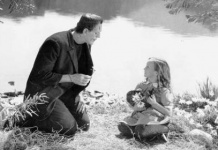Robert McCrum has posted a very interesting – and inadvertently revealing – article in the UK Observer, Sunday sister of The Guardian, on the financial difficulties of that poor struggling species, the writer. And as longstanding literary editor of The Observer and a writer himself, he should know. And his piece paints a very interesting picture of the publishing industry and a writer’s prospects within it, pre and post the great financial crisis of 2008.
 Just to be clear: I’m not belittling the plight of struggling writers who are trying desperately hard to get a foothold on both the literary and the income ladder. But this is really an article that needs to be bookended with Hugh Howey’s AuthorEarnings Report, because McCrum does not appear to be talking about that kind of writer. Rather, he’s referring to a group of mid-career, and often midlist, writers who found they had to adjust their expectations drastically downwards after the end of “a period of prosperity and tranquillity for British fiction that ran for about a generation (circa 1980 to 2007).”
Just to be clear: I’m not belittling the plight of struggling writers who are trying desperately hard to get a foothold on both the literary and the income ladder. But this is really an article that needs to be bookended with Hugh Howey’s AuthorEarnings Report, because McCrum does not appear to be talking about that kind of writer. Rather, he’s referring to a group of mid-career, and often midlist, writers who found they had to adjust their expectations drastically downwards after the end of “a period of prosperity and tranquillity for British fiction that ran for about a generation (circa 1980 to 2007).”
The whole article is so chock full of such insights that it’s worth coming through in detail just to find them. But here’s one especially telling passage from McCrum:
To writers of my generation, who grew up in the age of Penguin books, vinyl records and the BBC, it’s as if a cultural ecology has been wiped out. For as long as most of us can remember, every would-be writer knew the landscape of the printed word. This Georgian square was home to publishing grandees (now retired). On that high street were the booksellers (now out of business). In those twisting back streets, you could expect to find literary agents working the margins with the injured innocence of pickpockets at a synod. It was a mutually dependent ecosystem. Publishers were toffs, booksellers trade and printers the artisan champions of liberty. Like the class system, we thought, nothing would change. The most urgent deadline was lunch. How wrong we were.
American readers, just relish the rich flavor of the British class system in that passage, which McCrum himself instances. Needless to say, the leveling impetus of the internet came as something of a shock, especially when it came along with credit crunch, which “occurred at the very moment that the IT revolution was wrecking the livelihoods of those creative classes – film-makers, musicians and writers of all sorts – who had previously lived on their copyrights.”
I’m fascinated by the insights that McCrum brings to bear from his freight of experience and insider knowledge, but was the internet really, suddenly, circa 2008, wrecking the lives of the British creative classes? The two parts don’t really add up to me. McCrum quotes one writer who around 2008 was suddenly offered a Faber & Faber advance “only a fraction of what I’d been getting up to then.” Was 2008, not before or after, really when the ebook revolution started to decimate print book sales and author earnings? I very much doubt it. It sounds far more likely that the same financial problems afflicting just about every other industry in the credit crunch bit home in the clearly well-heeled world of publishing at the same time too – and the internet was there as a convenient scapegoat to blame it on.
McCrum makes some courtesy nods in the direction of new technology and the internet, but the term self-publishing doesn’t occur once in his article – though it does in the comments section below. He quotes his writers as worrying “about the surge in social media, the rise of Facebook, Twitter and the blogosphere, i.e. internet sites where anyone can put up “free content”, either for pleasure or self-promotion, or from a confused mixture of both instincts. Put these anxieties together and you have a picture of a way of life facing extinction.” That hardly sounds like a group that is especially aware of how to do KDP, to write your blog, and all those other demeaning crafts that the sadly deprived writer is having to learn.
Well, is it a way of life or a certain way of doing things? Because both individual authorly success stories and overall sales figures indicate that the writer is anything but an endangered species. These writers who complain of their lost earnings have those resources available just like everyone else, as well as a brand, loyal followers, visibility, and all the other assets that many other aspirants are going to have to spend years cultivating from scratch. But an ecosystem where the writer hawks his wares around the Georgian square to a select circle of toffs and grandees may not be that worth regretting after all. And it absolutely does not equate, as McCrum implies, to “the bone-marrow of the Western intellectual tradition.”


































I thought the British (and European) creative system involved the landed aristocracy using their spare time to create.
Sturmovik’s appraisal is as subtle – and humorous – as the idea that all Americans are ignorant, gun-toting racists who believe in alien abduction.
But…if alien abduction isn’t real, what was that flying saucer that picked me up last week? *scratches head*
Traditional publishing used to operate on the lottery system — put out a hundred books every year in the expectation that four or five would luck out and pay the costs of all the others. Publishers now have access to much better data, and as a result they can pay authors on the basis of what they are actually likely to sell. All other factors aside, better information is going to result in author payments that reflect their most probable value to the publisher, rather than vacuous optimism about what the public might go mad for this year.